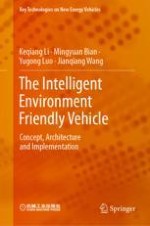This book elaborates the fundamentals, new concepts and key technologies of the Intelligent Environment Friendly Vehicle (i-EFV), and the engineering implementation of these technologies such as structure sharing, data fusion and control coordination. With lots of illustrations, it summaries the authors’ research in the field of automotive intelligent technology and electric vehicle control for the past twenty years, enabling readers to grasp the essence of automotive power revolution, intelligent revolution and information revolution. Opening up new scientific horizons and fostering innovative thinking, the book is a valuable resource for researchers as well as undergraduate and graduate students.
